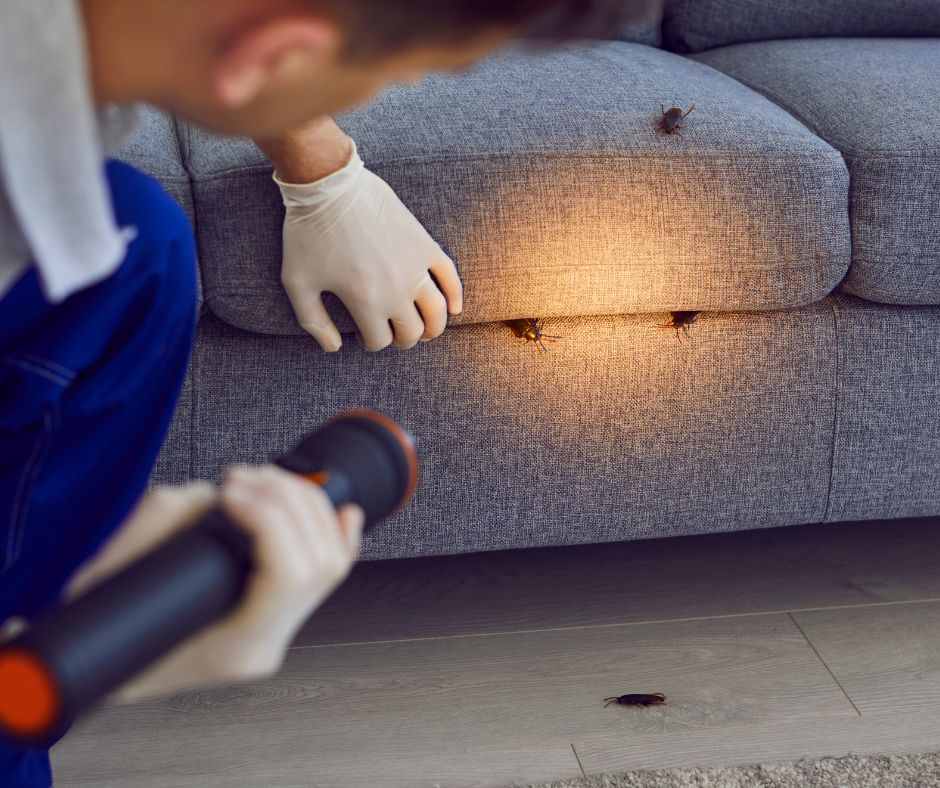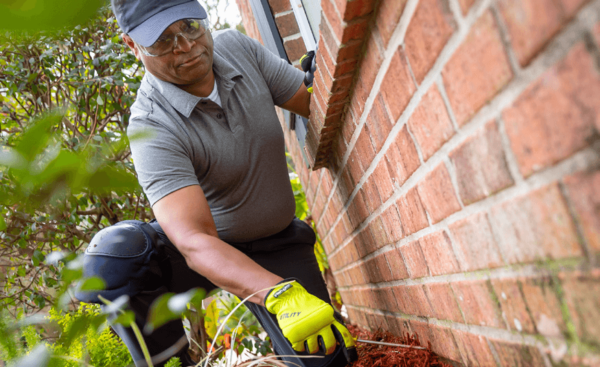Why Pest Control in Charlotte County Is Important for Your Property’s Health
Find Out About the most up to date Developments in Parasite Control and How to Execute Efficient Therapy Solutions
In recent years, the field of bug control has observed substantial developments, driven by the demand for lasting and effective therapy solutions. Innovative methods such as Integrated Parasite Administration (IPM) incorporate environment-friendly practices with sophisticated technology, boosting both efficacy and ecological responsibility.
Eco-Friendly Parasite Control Options
Over the last few years, the need for green pest control choices has actually risen as home owners and businesses alike seek sustainable options to standard chemical therapies. This change is driven by expanding ecological recognition and a need to minimize the health risks connected with synthetic pesticides.

Eco-friendly parasite control techniques include a series of approaches that focus on the use of all-natural materials and methods. Integrated Pest Monitoring (IPM) is one such technique, combining organic, cultural, and mechanical tactics to take care of insect populations while reducing dependence on chemicals (Wildlife removal services). This holistic approach highlights prevention with habitat adjustment and the intro of natural killers, thereby cultivating a balanced ecological community
One more preferred choice is using herb chemicals stemmed from plants, which often tend to be much less harmful to non-target microorganisms. Products like neem oil and diatomaceous earth have gained grip for their efficiency in regulating insects while posturing minimal threats to human health and the atmosphere.
Additionally, exemption methods, such as securing entry points and preserving sanitation, play a vital role in environment-friendly parasite management. By embracing these lasting techniques, individuals and companies can efficiently handle insects while promoting a much healthier planet for future generations.
Smart Innovation in Parasite Monitoring
Innovation is reshaping the landscape of bug administration, with clever modern technology emerging as a crucial pressure in boosting efficiency and performance - Wildlife removal services. The assimilation of Net of Points (IoT) gadgets, fabricated intelligence (AI), and information analytics is reinventing just how parasite control specialists come close to problems
Smart catches outfitted with sensing units can detect pest task in real-time, sending out prompt signals to drivers. This enables prompt actions, lessening damage and decreasing the need for comprehensive treatments. Additionally, AI formulas assess historic data to predict pest actions, making it possible for aggressive treatments based on environmental problems and problem patterns.
Drones and automatic automobiles are likewise playing a significant role in parasite administration, offering aerial assessments of huge locations, determining hotspots, and even distributing targeted therapies. These innovations not only simplify procedures however also boost security by limiting human direct exposure to potentially unsafe chemicals.
Moreover, mobile applications empower customers to keep track of pest task and access specialist recommendations, fostering a collaborative strategy to pest management. Generally, the adoption of clever innovation is establishing a new standard in bug control, emphasizing data-driven choices and sustainable methods that ultimately benefit both homeowners and experts alike.
Integrated Pest Administration Strategies
Integrated Bug Monitoring (IPM) utilizes a holistic technique to pest control, combining different approaches to effectively handle parasite populations while lessening threats to human health and the atmosphere. IPM focuses on understanding the pest life cycle, their natural opponents, and the ecological community in which they thrive.
One of the essential parts of IPM is keeping an eye on pest populaces via regular evaluations and data collection. This permits the recognition of parasite thresholds, determining when intervention is required. Cultural methods, such as plant sanitation, rotation, and habitat adjustment, are essential in minimizing pest prevalence and promoting plant health.
Mechanical controls, including traps and obstacles, are likewise crucial in IPM. These techniques can physically remove or deter pests without using chemicals. When necessary, the wise application of chemical controls is used, concentrating on targeted treatments that decrease ecological impact.
Education and learning and cooperation amongst stakeholders, including farmers, pest control experts, and the area, are important for the successful implementation of IPM strategies. By focusing on lasting methods, IPM not only addresses pest concerns however also cultivates a much healthier community.
Biological Control Methods
Countless organic control techniques are progressively recognized for their performance in handling insect populaces while promoting ecological equilibrium. These techniques harness all-natural predators, bloodsuckers, and microorganisms to reduce pest numbers without depending on synthetic chemicals. For example, the introduction of ladybugs can effectively manage aphid populaces, while nematodes target soil-dwelling bug larvae.
Furthermore, using microbial pesticides, such as Bacillus thuringiensis (Bt), provides an ecologically friendly option for taking care of caterpillar insects. These items specifically target pest types, minimizing go to website injury to advantageous pests and pollinators. Conservation biological control stresses boosting habitats for natural opponents, such as birds and beneficial insects, consequently urging their presence in agricultural systems.
Research study proceeds to expose cutting-edge approaches within this field, such as the use of scents to interfere with pest breeding patterns or the development of biocontrol agents through genetic modification. Implementing these techniques can lead to lasting bug administration techniques that minimize the reliance on chemical treatments, eventually cultivating much healthier communities. As understanding of these methods expands, they are ending up being important parts of incorporated parasite monitoring (IPM) approaches, supplying an equilibrium in between efficient bug control and ecological stewardship.
DIY Insect Control Solutions
As property owners seek effective ways to take on parasite concerns, do it yourself bug control services have gained popularity for their accessibility and cost-effectiveness. These approaches encourage people to deal with infestations using conveniently offered materials and techniques, frequently without the need for professional treatment.

Furthermore, preserving proper sanitation and normal examinations can protect against bug entrance and nesting (Wildlife removal services). Easy practices, such as securing splits, eliminating food resources, and decluttering, can dramatically decrease pest Go Here populaces. Traps, both homemade and readily readily available, can likewise provide effective remedies for surveillance and managing specific parasites like rats or bugs

Final Thought
The integration of eco-friendly insect control options, wise technology, and ingenious monitoring approaches presents a detailed approach to efficient pest administration. By welcoming Integrated Insect Administration (IPM) and making use of biological control techniques, along with DIY services, sustainable and responsible parasite control can be achieved.
Eco-friendly insect control methods include a variety of approaches that prioritize the use of natural compounds and techniques. Integrated Pest Management (IPM) is one such method, incorporating organic, social, and mechanical tactics to manage insect populaces while lowering dependence on chemicals. As awareness of these techniques grows, they are becoming essential elements of incorporated bug monitoring (IPM) approaches, supplying an equilibrium in between reliable parasite control and ecological stewardship.
The assimilation of green parasite control alternatives, clever modern technology, and cutting-edge monitoring approaches offers a thorough strategy to reliable bug administration. By accepting Integrated Insect Monitoring (IPM) and making use of organic control techniques, alongside DIY check my reference remedies, accountable and sustainable parasite control can be attained.